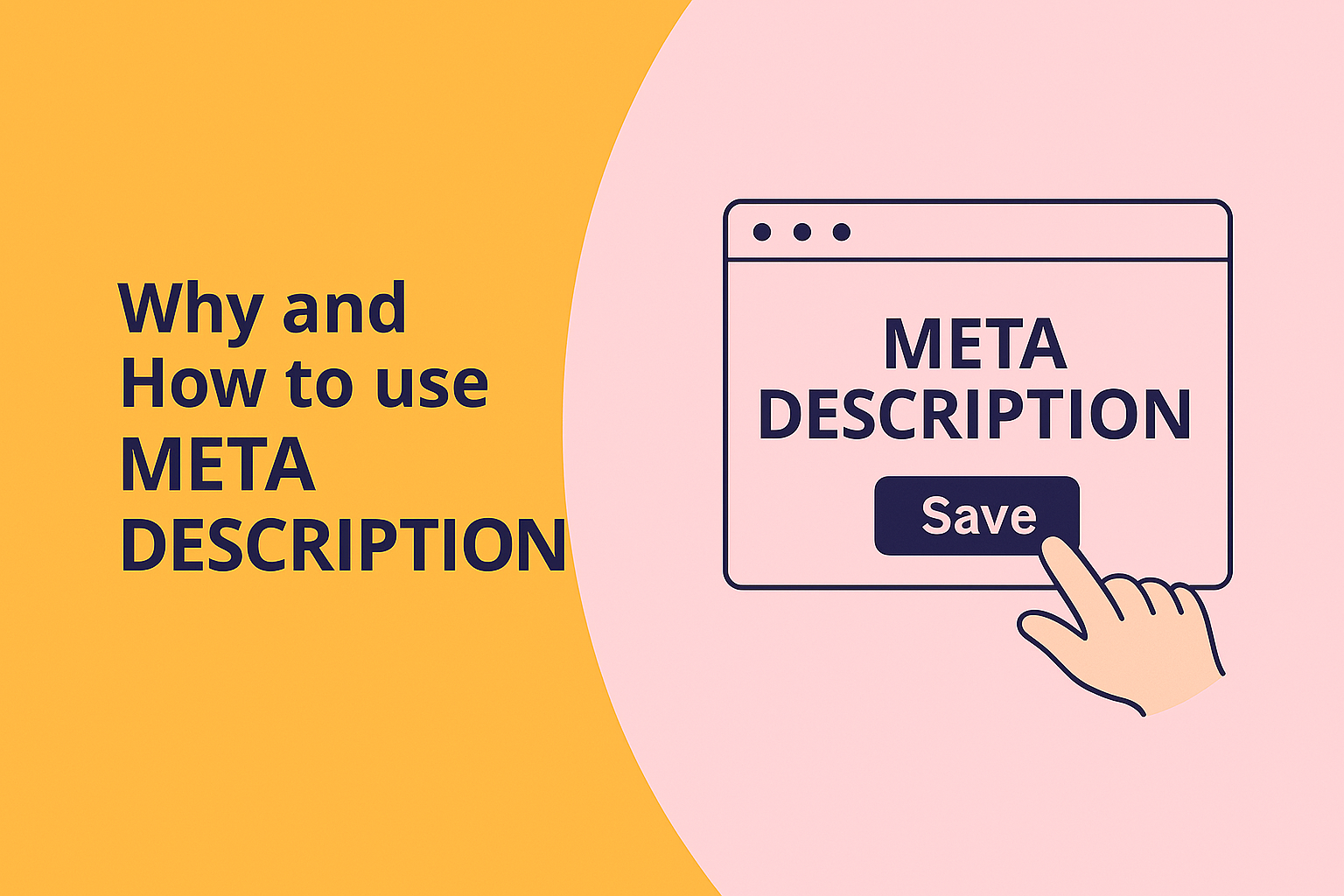Why Every Website Should Use Meta Descriptions: More Than Just an SEO Box to Tick
When crafting a website, most developers and content creators focus on the essentials—clean design, intuitive navigation, fast load times, and compelling content. But there’s one small, often overlooked HTML element that can have a surprisingly large impact: the meta description.
While it doesn’t directly boost search engine rankings, a well-written meta description can make all the difference between someone clicking on your page or scrolling past it. Here’s why you should never skip it.
🧭 What is a Meta Description?
A meta description is a short summary of a webpage’s content, usually around 150–160 characters, embedded in the page’s HTML. It appears in search engine results beneath the page title and URL, acting like your digital elevator pitch.
<meta name="description" content="Shop handcrafted wooden furniture made from sustainable materials. Unique pieces for every home.">
Though not visible on the page itself, this snippet plays a crucial role in how users perceive and interact with your site in search results.
🎯 Benefits of Using Meta Descriptions
1. Improves Click-Through Rates (CTR)
Google may not use meta descriptions as a ranking signal, but it does pay attention to how often people click on your link. A clear, relevant description can spark interest and encourage clicks—meaning more traffic for you.
2. Helps Set Accurate Expectations
A good meta description tells users exactly what they’ll find if they visit your page. It prevents bounce rates caused by confusion or misleading content and builds trust by delivering on its promise.
3. Adds Marketing Power
Think of meta descriptions as tiny advertisements. With just a few words, you can:
- Showcase your brand’s voice and tone
- Highlight unique selling points
- Include a subtle call-to-action (“Explore now,” “Learn more,” “Get started today”)
4. Better Social Sharing Previews
When someone shares a link to your site on platforms like Facebook or LinkedIn, the meta description often appears as part of the preview. If you don’t have one, the platform might generate a bland or incorrect snippet instead.
5. Gives You Control Over Messaging
If you don’t write a meta description, search engines will pull random text from the page, which may be incomplete, confusing, or unrelated. Writing your own gives you a chance to guide how your content is framed.
Common Pitfalls to Avoid
- Too Long or Too Short: Stick to 150–160 characters to avoid truncation or underutilized space
- Keyword Stuffing: Use keywords naturally—don’t cram them in
- Duplicate Descriptions: Avoid using the same meta description across multiple pages
✍️ Final Thoughts
In a crowded digital landscape, every character counts. While meta descriptions may seem like a minor detail, they function as the front door to your content—inviting, informative, and crucial for making a strong first impression. For marketers, developers, and bloggers alike, taking a few moments to write one is a small investment with a potentially big return.





